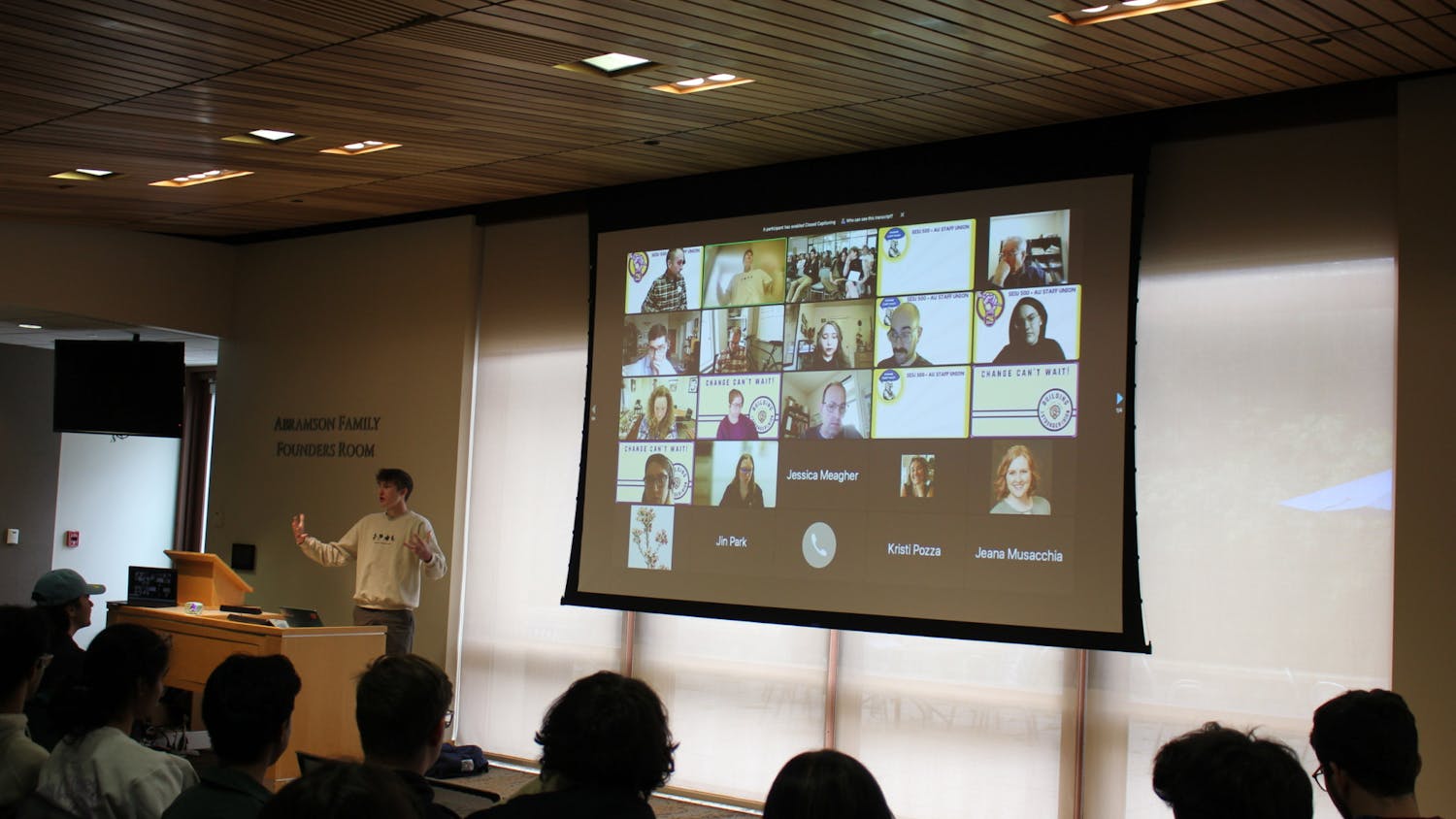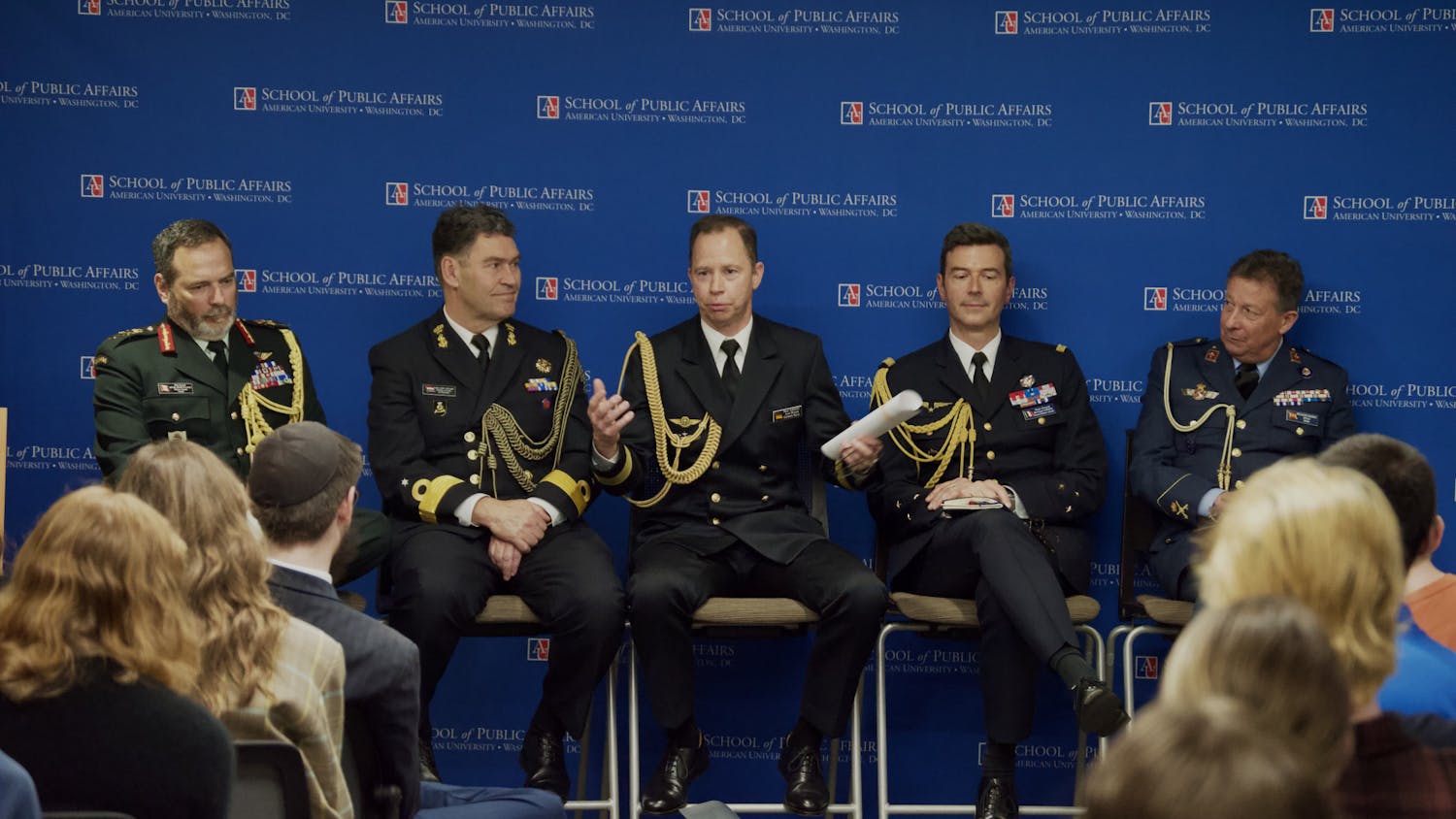The vote will determine whether the faculty senate or Local 500 of the Service Employees International Union will represent the faculty in resolving any issues with AU administration.
The election will be held from Jan. 19 until Feb. 16, and the majority of votes will determine the outcome.
Ballots must be mailed to the National Labor Relations Board prior to Feb. 16 for the vote to count.
AU promoted the election by distributing and posting notices provided by the NLRB in each of the six schools, posting information on the AU website and sending an email to all eligible voters, according to Provost Scott Bass.
“We want them [adjunct faculty] to make an informed decision and encourage them to vote,” he said.
The NLRB mailed 1,700 secret ballots to all adjunct faculty members who are eligible to vote, which include those who:
• Were appointed for a three-year term before or as of Dec. 2, 2011
• Taught a one-credit class in fall 2011
• Have taught a one-credit class two semesters since Jan. 1, 2010
• Adjunct faculty members who cannot vote and would not be represented in the union include:
• Lab, graduate, teaching and research assistants
• Clinical and teaching fellows
• Teaching administrators
• AU students who are seeking a degree with an adjunct appointment
• Full-time staff
About 500 adjunct faculty members out of 1,700 possible adjuncts are teaching this semester, according to Bass. Some choose not to teach every semester for personal and professional reasons.
Voting “No”
Bass said adjunct representation through a union would transform the culture of AU.
“It will change the whole way we do business,” he said, noting that the University is concerned about the consequences of the vote.
The Faculty Senate has been creating an ad hoc committee to review adjunct faculty member issues for the upcoming year, but must wait to continue until the vote on the union is over. The Senate is an elected body of faculty members that handles academic and professional issues.
“We’re the academic gatekeepers of the institution,” said Faculty Senate Chair Jim Girard.
Adjunct faculty members are not currently represented on the Faculty Senate.
“The challenge the Faculty Senate will have to address is that some are so busy they wouldn’t have the time or want to serve [on the Faculty Senate],” Girard said. “They barely have time to teach you [students].”
Bass and Girard did not openly state whether or not they support the union, instead encouraging adjunct faculty to vote on the issue.
If the majority of adjuncts chose to continue to be represented by the University, the Faculty Senate will finish electing the committee to address adjunct faculty members’ issues.
Girard said the Faculty Senate will work to offer the adjunct community more representation on campus.
“The Faculty Senate used to be all tenure faculty, which is the norm of major universities and colleges,” Girard said. “Now seats at AU are open to term and tenure faculty members.”
Girard mentioned a 2011 Chronicle of Higher Education article by Peter Schmidt that applauded the AU’S progress with term faculty by allowing them more job security and representation.
Term faculty are fulltime faculty working under one year or multiyear contracts, which does not include adjuncts.
“In the years since, the University’s administration has taken a long list of steps intended to promote openness, decentralize governance, and leave faculty members feeling more empowered,” Schmidt wrote in the article.
Girard said the University is ahead of other universities across the nation in its handling of term faculty issues.
“I’ve met with leaders from other universities, and they think what we’re doing is really good,” Girard said.
Adjunct faculty members currently receive free parking and retirement benefits, according to Bass.
Not all adjunct faculty members said they believe choosing Local 500 SEIU as their representative is the right decision.
“I wish it was being done by a competition among unions,” School of Communication adjunct Professor Fernando Alessandri said. “Or by a group of lawyers because a union doesn’t have the understanding.”
Alessandri said he would be against forming a union since he expected low pay as an adjunct professor.
“I did it [teach] because I enjoyed it and it was more income,” he said. “I never thought I could live off of it.”
Voting “Yes”
College of Arts and Sciences adjunct Professor Mark Plane lives off his wages of $2,900 per course or $19,700 a year.
“To be quite honest, I don’t make a living wage at American University,” he said.
Plane said he would have to teach 15 courses to earn the equivalent of a term faculty member in the anthropology department.
“I have a 21-year-old daughter who makes more than me as a retail manager,” he said.
With rising costs for standard of living, Plane said he is going into debt despite his earned degrees.
“If the union doesn’t prevail, I don’t know how long I can stay,” Plane said.
If adjuncts select the Local 500 as their representative, the union will request to bargain with AU, according to Anne McLeer, the director of research and strategic planning at the Local 500 of SEIU.
“We will spend some time gathering information about what they [adjuncts] want to see change,” McLeer said.
The union will draw up a contract and begin negotiations once this information is collected. The amount of time it will take for the contract to go into effect will depend on the cooperation of the University, according to McLeer.
Adjunct faculty will approve the agreed contract before going into effect.
McLeer said adjunct faculty should vote to ensure their voice is heard.
“The adjunct faculty at American University face a historic opportunity to vote ‘yes’ and make a difference,” she said. “This week they have that chance.”
pjones@theeagleonline.com




